Do you struggle with oily skin? Look no further, below we will look into what causes oily skin and the best products and treatments to help with this!
OILY SKIN ACNE FEATURED

Introduction
Welcome to our informative blog post dedicated to tackling the common concern of oily skin! If you’ve struggled with excessive shine, enlarged pores, and frequent breakouts, you’re not alone. In this comprehensive guide, we’ll dive into the causes and characteristics of oily skin, shedding light on why it occurs and how to identify its tell-tale signs. But fear not! We won’t leave you hanging. We’ll also explore a range of effective treatment options and recommend some top-notch skincare ingredients specifically tailored to combat oiliness and restore balance to your skin. So, let’s embark on this journey together and unlock the secrets to mastering oily skin, transforming it into a healthy, radiant complexion. Get ready to say goodbye to excess oil and hello to a beautifully balanced visage!
Causes
Oily skin is primarily caused by overactive sebaceous glands, which produce an excess amount of sebum, the skin’s natural oil. There are several factors that can contribute to the development of oily skin. Hormonal changes, particularly during adolescence and hormonal imbalances, can trigger an increase in sebum production. Genetics also play a role, as oily skin tends to run in families. Additionally, environmental factors such as high humidity and heat can stimulate oil production. Certain skincare products or cosmetics that are heavy or comedogenic can clog pores and lead to oily skin. Stress, diet, and even over-washing or over-exfoliating the skin can disrupt the skin’s natural balance and prompt increased sebum production. Understanding the causes of oily skin can help in selecting the right skincare routine and products to manage oiliness effectively.
Products
For oily skin, it’s important to choose skincare products with ingredients that help control excess oil production, balance sebum levels, and provide lightweight hydration without clogging pores. Here are some beneficial ingredients to look for:
-
Salicylic Acid: An effective ingredient for oily skin, salicylic acid helps to unclog pores, reduce oiliness, and prevent breakouts. It has exfoliating properties that can help remove dead skin cells and keep pores clear.
-
Niacinamide: This ingredient helps regulate sebum production, reduces the appearance of enlarged pores, and improves the overall texture of oily skin. It also has anti-inflammatory properties that can soothe acne-prone skin.
-
Tea Tree Oil: With its natural antibacterial and anti-inflammatory properties, tea tree oil can help control excess oil production and reduce acne breakouts.
-
Hyaluronic Acid: Despite being commonly associated with dry skin, hyaluronic acid can also benefit oily skin. It provides lightweight hydration without adding extra oiliness, helping to balance the skin’s moisture levels.
-
Glycolic Acid: As an alpha hydroxy acid (AHA), glycolic acid exfoliates the skin, removes dead skin cells, and helps control oiliness. It can also improve the appearance of acne scars and uneven skin tone.
On the other hand, it’s important to avoid certain ingredients that can exacerbate oiliness or clog pores. These include:
-
Heavy Oils: Avoid heavy, comedogenic oils such as coconut oil, which can clog pores and make oily skin feel greasier.
-
Petroleum Jelly: While occlusives can be beneficial for dry skin, petroleum jelly can be too heavy for oily skin and potentially contribute to clogged pores.
-
Artificial Fragrances: Fragrances can sometimes irritate oily skin and lead to breakouts. Opt for fragrance-free or lightly scented products.
-
Sulfates: Sulfates, such as sodium lauryl sulfate (SLS), can be harsh and strip the skin of its natural oils, leading to rebound oiliness. Look for sulfate-free cleansers.
-
Alcohol: Avoid products that contain high concentrations of alcohol, as they can be drying and potentially trigger more oil production as the skin tries to compensate.
Keep in mind that every individual’s skin is unique, and it’s important to pay attention to how your skin responds to different ingredients. It’s recommended to consult with a dermatologist or skincare professional to determine the best ingredients and products for your specific oily skin concerns.
Treatments
Remember, everyone’s skin is unique, so it’s essential to discuss your skin needs with a dermatologist or skincare professional for personalized advice on the best treatments and products for your specific skin concerns.
Navigating through oily skin’s challenges may seem overwhelming, but the right treatments can significantly help manage and improve your skin’s condition. Hydrofacials and Personalised facials, tailored for oily skin, effectively cleanse and exfoliate, removing excess oil and unclogging pores. On the other hand, chemical peels can be exceptionally beneficial, helping to reduce oil production and prevent breakouts by removing the outermost layer of the skin and revealing healthier skin underneath. Dermaplaning also aids in controlling oiliness by gently exfoliating the skin and removing dead skin cells and peach fuzz that trap excess oil. Remember, it’s all about balance; our aim is not to eliminate oils entirely but to help regulate your skin’s natural oil production for a healthier, more balanced complexion.
Conclusion
In conclusion, managing oily skin is a journey, and finding the right treatment can be a game-changer. From Hydrofacials to chemical peels, each treatment we offer is tailored to combat excess oil, prevent breakouts, and promote a balanced, glowing complexion. Embrace the uniqueness of your oily skin type and let’s work together to enhance its health and beauty. Remember, the journey to beautiful skin is one of self-love and care, and we’re here to guide you every step of the way. Book a free consultation with us today to discover your path to a radiant, oil-balanced skin.

